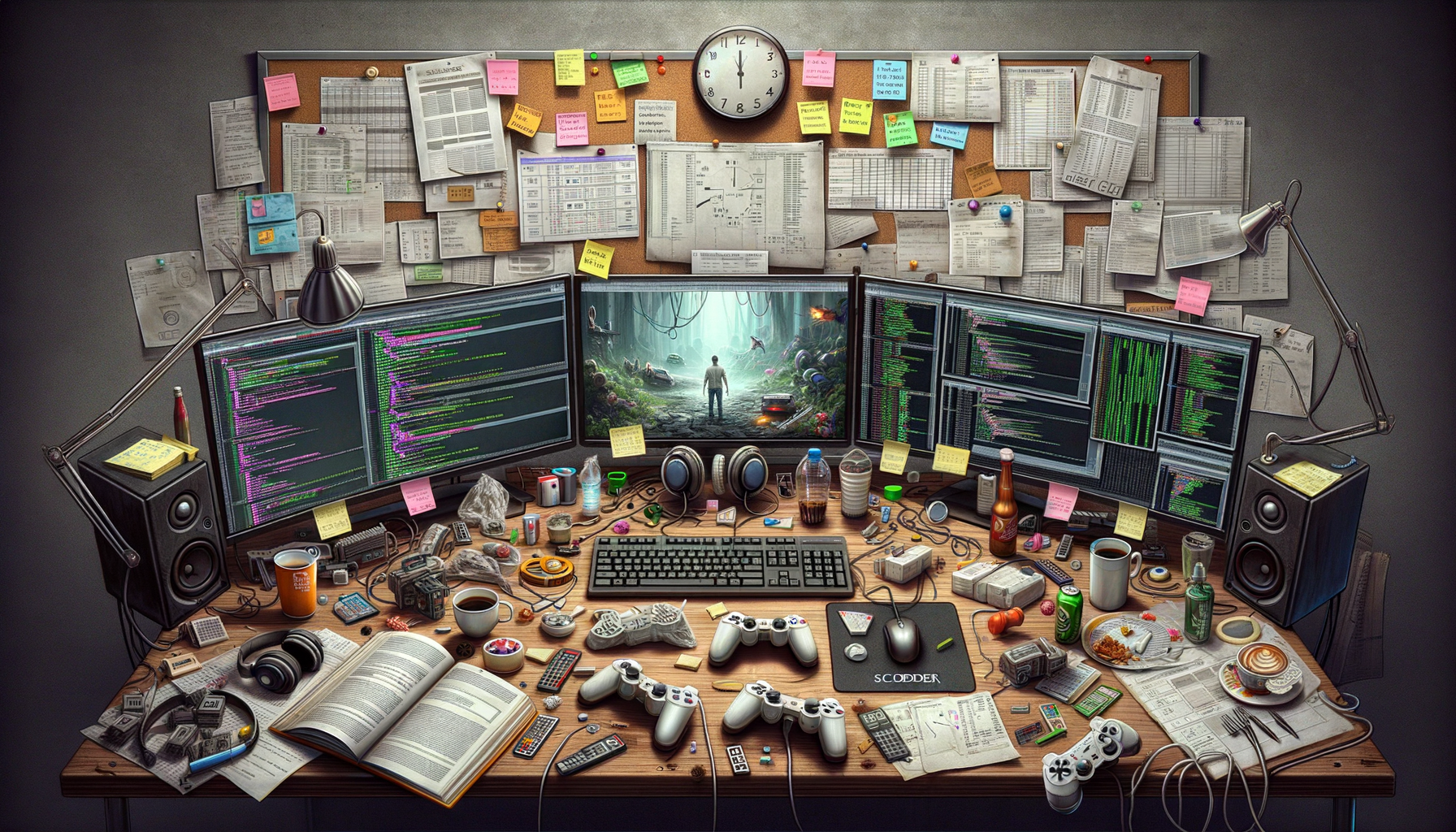The Role of a Game Tester: More Than Just Playing Games
When people hear the term “game tester,” they often imagine someone lounging on a couch, controller in hand, simply playing video games all day. However, the reality of a game tester’s job is far more complex and demanding. Game testers are responsible for ensuring that a game runs smoothly before it hits the market. They meticulously search for bugs, glitches, and any inconsistencies that could disrupt the player’s experience. This role requires a keen eye for detail, patience, and a methodical approach to testing.
Game testers work closely with developers to identify issues and suggest improvements. They document their findings in detailed reports, which are then used by the development team to make necessary adjustments. This collaboration is crucial in the game development process, as it helps create a polished final product. Game testers often work under tight deadlines, requiring them to manage their time effectively and prioritize tasks efficiently.
While the job might seem straightforward, it involves a variety of tasks that go beyond just playing games. Testers need to understand the game’s mechanics, storyline, and objectives to provide valuable feedback. They also need to be familiar with different testing methods, such as functionality testing, compatibility testing, and regression testing, to ensure comprehensive coverage of the game.
The Skills and Qualities of a Successful Game Tester
Being a successful game tester requires a unique set of skills and qualities that go beyond a passion for gaming. While a love for video games is essential, it is not the only requirement. Game testers need to possess strong analytical skills to identify and solve problems effectively. They must be detail-oriented, as even the smallest glitch can impact the overall gaming experience.
Communication skills are also crucial for game testers. They must be able to articulate their findings clearly and concisely in both written and verbal forms. This ensures that developers understand the issues and can address them appropriately. Additionally, game testers need to be adaptable and open to feedback, as the gaming industry is constantly evolving, and new challenges arise regularly.
Technical proficiency is another important aspect of a game tester’s skill set. They should be comfortable using various testing tools and software, as well as have a basic understanding of programming languages. This technical knowledge allows them to perform their tasks more efficiently and effectively.
The Challenges and Rewards of Game Testing
Game testing is not without its challenges. Testers often work long hours, especially as deadlines approach, to ensure that the game is ready for release. The repetitive nature of the job can also be taxing, as testers may need to play the same level or section of a game multiple times to identify and document issues. This requires a high level of patience and perseverance.
Despite these challenges, game testing can be incredibly rewarding. Testers play a vital role in the development process, contributing to the creation of a high-quality product that will be enjoyed by players worldwide. The satisfaction of seeing a game they worked on become a success is a significant motivator for many testers.
Furthermore, game testing offers opportunities for career growth within the gaming industry. Testers can advance to roles such as lead tester, quality assurance manager, or even transition into game development or design positions. This makes game testing an attractive entry point for those looking to build a career in the gaming world.
The Future of Game Testing: Trends and Innovations
The gaming industry is constantly evolving, and game testing is no exception. As technology advances, new trends and innovations are shaping the future of game testing. One such trend is the increasing use of artificial intelligence (AI) and machine learning to automate certain aspects of the testing process. This allows testers to focus on more complex tasks, improving efficiency and accuracy.
Virtual reality (VR) and augmented reality (AR) are also becoming more prevalent in gaming, presenting new challenges and opportunities for game testers. Testing VR and AR games requires a different approach, as testers must consider factors such as user comfort, motion sickness, and spatial awareness. This adds a new layer of complexity to the testing process, requiring testers to adapt and develop new skills.
Another trend is the growing importance of community-driven testing, where developers involve players in the testing process through beta releases and feedback sessions. This approach allows developers to gather valuable insights from real players, helping them create a more engaging and enjoyable gaming experience.
How to Become a Game Tester: Steps and Tips
For those interested in pursuing a career as a game tester, there are several steps and tips to consider. First and foremost, aspiring testers should build a strong foundation in gaming by playing a variety of games across different genres and platforms. This helps develop a well-rounded understanding of game mechanics and design.
Education and training can also be beneficial. While a degree is not always required, courses in game design, computer science, or related fields can provide valuable knowledge and skills. Additionally, gaining experience through internships or volunteer opportunities can help aspiring testers build a portfolio and make valuable industry connections.
Networking is another important aspect of becoming a game tester. Attending gaming conventions, joining online communities, and connecting with industry professionals can open doors to job opportunities and provide valuable insights into the industry. Finally, aspiring testers should be prepared to start in entry-level positions and work their way up, as experience and dedication are key factors in advancing within the gaming industry.




Leave a Reply